Student Blog
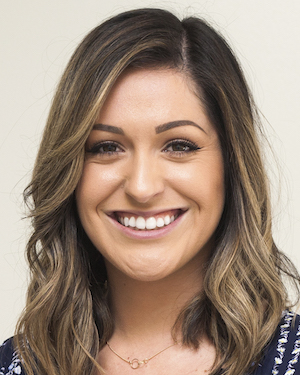
Specialization in Occupational Therapy ⟩
October 11, 2018, by Melissa
Hey everyone! I’m currently in the process of picking electives for the upcoming spring semester and I thought this would be a great time for me to talk about the opportunity to “specialize” in OT! Although the program prepares us to be generalists — meaning we graduate with knowledge in many areas — we have the opportunity to take several elective courses during the spring semester of our second year! This is where the “specializing” comes in, as you can take courses that fit your specific interests and help you expand your knowledge in a specific area. For example, a student that is interested in pursuing a career in hand therapy can take the Advanced Practice in Hand Therapy and Physical Agent Modalities and Hand Rehabilitation electives. A student interested in pediatrics may want to take the Sensory Integration Theory and Intervention courses, which is a particularly unique opportunity since Sensory Integration originated at USC. Another example is taking an OT In Acute Care course or the Enhancing Motor Control for Occupation course if you’re interested in working in a physical rehabilitation setting. These are just a few of the MANY options available to us.
In addition to taking courses within the division, students can take classes at other schools at USC, such as courses in business, education, and public policy. It’s a great opportunity to expand our knowledge of other fields, and become increasingly well-rounded clinicians. Lastly, I would like to discuss yet another option we have during the spring semester, which is an opportunity to take an independent study course with a faculty member within the division. This option allows you to specialize even further by working on a study that fits your interests. The moral of the story is that the possibilities are endless!
One thing I would like to add is that it’s okay if you don’t know what area you want to go into. You can take electives in several areas, and use the spring semester as a time to explore different options in order to see what feels like the best fit. Our program does a great job of exposing us to many different areas of practice and preparing us to be great clinicians, so don’t stress about making the decision to “specialize” if you’re not ready. As always, feel free to reach out with any questions you may have.
⋯
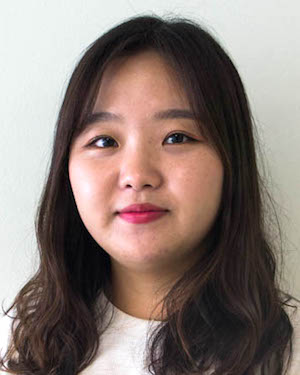
How to Get Information about the Master’s Program in Abroad ⟩
October 8, 2018, by Goeun
It is not easy to get information about a school especially when the location is far from your country. For me, after I decided to go to school in the US for master’s program in occupational therapy, I tried to gather all information, but it was quite hard to find and confusing what and where to ask. So, I’d like to share what I did, and what I should’ve done better for more information.
1. Things I did
Search the internet: This is the first and most frequent work that I did. First I searched with terms such as “occupational therapy in the US,” “occupational therapy master’s program,” “occupational therapy school,” etc. Then, I decided to surf each university’s website, especially on the USC Chan Division website (I almost decided to go to USC then). It was good to find information on the websites, but there was too much information sometimes that I couldn’t distinguish which one might be useful for me.
Ask professors from my undergraduate school: They were all supportive and helpful but it wasn’t enough since I was the first student who was applying for Master’s Program abroad at my university.
2. Things I should’ve known and done
Contact! As you may know, we have our contact information on our admission page. There are not only contact information to the admission team but also about request information and virtual information session which you can attend even if you’re not in here. I thought if I had contacted before I apply, I could know more and be sure that I’m applying properly.
Lastly, As a previous prospective international student, I was always thinking that it would be great if I could find information more efficiently, and have someone to ask questions, which is one reason why I wanted to be a student ambassador.
⋯
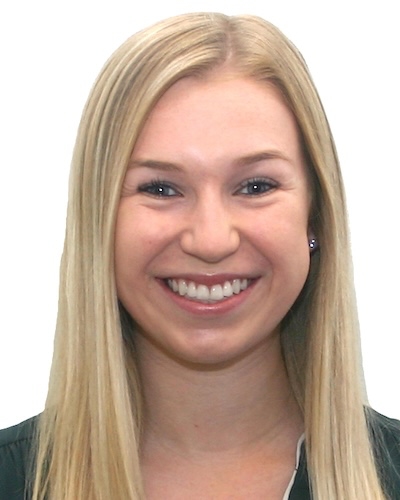
Teamwork Makes the Dream Work ⟩
October 1, 2018, by Jessica P.
One of my favorite parts of the USC OT program is that our learning doesn’t just stop in the classroom. Whether it’s going out to a hospital for fieldwork or to skid row to volunteer at the USC Student-Run Clinic (SRC), there are endless opportunities to apply our OT knowledge. One of the amazing opportunities we have to get involved through our Adulthood and Aging course is the Interprofessional Geriatrics Curriculum (IPGC).
IPGC is a chance for us to work with students from different disciplines including physical therapy, medicine, physician’s assistant, pharmacy, social work, and psychology. We get divided into teams and then paired with an older adult living in a low-income community housing complex.
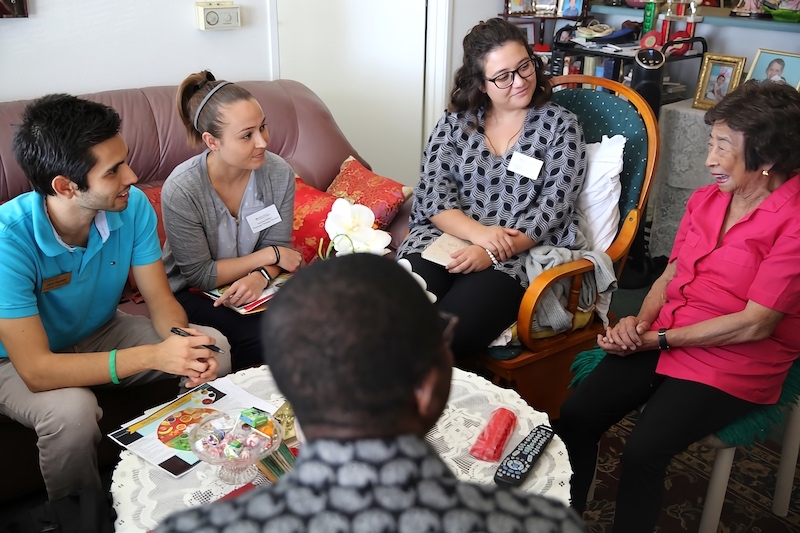
IPGC students meeting with their resident. Photo credit: Claire Norman, MSJ (courtesy of the Keck School of Medicine of USC)
Throughout the semester we spend a few Friday afternoons at the community housing complex where we get brief lectures on topics related to our visit, such as oral health, cognition, fall prevention, and psychosocial issues. After our lecture, we meet with our older adult to learn more about them and apply what we learned during our lecture.
This past Friday, I had my first IPGC visit where we started out the afternoon with a lecture on medication management and nutrition in older adults. Professors from pharmacy and medicine gave us resources, such as the Beers list, to utilize in our future practice.
After our lecture, we broke up into our teams and met our older adult who we will be working throughout the rest of the semester. We spent a lot of time building rapport with our resident and getting to know her story. My teammates and I discussed her various medications and different side-effects that may occur from those. As an OT student, my main role was teaching her how to utilize a pill box organizer and implement taking medications into her daily routines. We also discussed the importance of healthy, balanced meals and how this can influence the aging process.
The afternoon flew by so quickly that we were all sad to have our time come to an end. I felt as if we really got to know our resident and build rapport with her. After we met with our resident, our team debriefed on what went well for us as a team and identified strategies to improve on for next time. As occupational therapists, we often work in teams so learning how to navigate conflicts and communicate effectively is key and IPGC is the perfect place to begin practicing this.
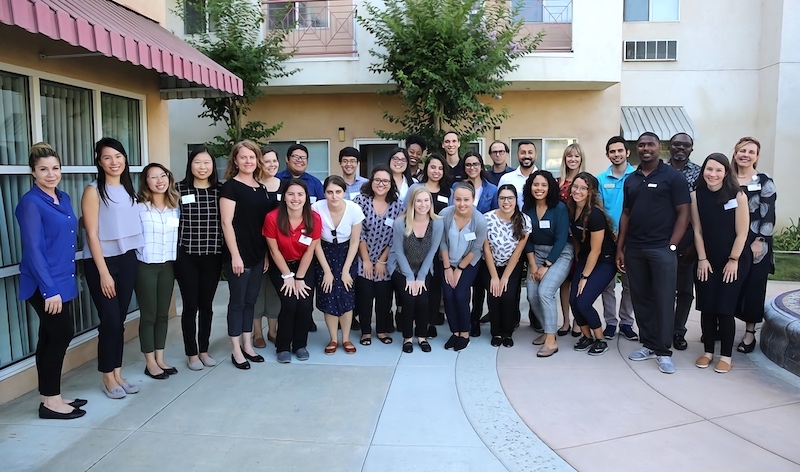
IPGC students. Photo credit: Claire Norman, MSJ (courtesy of the Keck School of Medicine of USC)
⋯
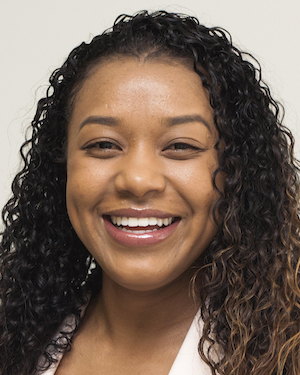
The Benefits of Yoga in Occupational Therapy ⟩
September 24, 2018, by Serena
My relationship with yoga started when I graduated from undergrad in 2015. Growing up and living in Los Angeles, I always knew about yoga but had never tried it. Like many, I enrolled in a yoga class with the intentions of becoming more fit. Fast forward 3 years later and I not only practice yoga 5-6 times a week for my own physical and mental healthy but I have also received my yoga teacher training certification with the intentions of using it within my occupational therapy practice. Not only has yoga transformed my physical health but my entire way of living. Through yoga I have cultivated an overall healthier lifestyle. Specifically, yoga has positively impacted my sleep, stress, eating, and exercise habits and routines.
As occupational therapists we understand that not every activity is going to reap the same benefits for every individual. We all have different preferences. With this in mind I plan on helping individuals who are interested in yoga, use it as a tool to meet their health goals. One of the many things that I love about yoga is that there are so many variations. There is hot yoga, power yoga (vigorous), kundalini (psycho-emotional focus), chair yoga, aerial yoga and the list can go on and on. Even within the yoga practice, it is not only about postures but also about strengthening one’s breath work, meditation, concentration, and so on.
With the huge variations in types and focus of yoga comes the wide range of ability to grade yoga to match the client’s needs and desires. As an OT, grading the activity to find the just right challenge for the individual is crucial for optimizing health. Yoga gives you so many options to be able to successfully meet the client where they are, at any given moment.
Yoga can be a community or an individual practice, it can be practiced in the hot or in the cold, rain or shine. Yoga is all about what you make it and what you take from it. It is such a giving practice with many styles and techniques. With the design to keep the mind and body healthy, it is a perfect tool for OTs to use to help their clients reach optimal well-being in a meaningful way.
⋯

Let’s Talk Extracurriculars! ⟩
September 21, 2018, by Melissa
A question we’re often asked is, “Can I work while I’m in the program?” And our answer to that is always that it depends! What we can handle varies person to person, therefore what you decide to take on while you’re in the program will depend on your preferences. That being said, our program is considered to be full-time and is enough to keep most people pretty busy!
If you do want to get involved, however, there are plenty of great opportunities to get involved on campus! Jessica, my fellow student ambassador, recently touched upon some of the professional and volunteering options you have. The organizations and clubs are diverse in what they address, and I feel like there is something for everyone out there. In addition to those options, you can also apply for a paid job within the division! The beauty of student worker positions is that they are relatively flexible, and everyone at USC is cognizant of the fact that we’re students! In addition to my student ambassador position, I’m also a student worker on one of the many research projects happening here at USC, called the Sensory Adapted Dental Environment 2 (SADE-2). I have learned so much in this position in my short time in the program, and I feel like I have a much better grasp on what a career in research entails.
Overall, my number one piece of advice for students that are wondering whether to get a job or participate in clubs/organizations is to make sure to have balance. This is something that everyone strives for and is difficult to achieve while in graduate school. Ultimately, only you know yourself best, and only you know how much you can handle, so just make sure you listen to your body! And most importantly, remember to enjoy the ride.
⋯





